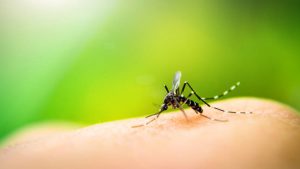A study that analyzed different cases of the epidemic in Africa concluded that the new variant of monkeypox (Mpox) is transmitted mainly between humans, while the older version is transmitted mainly by animals.
The study published Thursday in the Cell Journal shows that the disease follows different patterns.
Several epidemics of Mpox, also known as “monkeypox,” are currently widespread in the Democratic Republic of Congo and, to a lesser extent, in neighboring countries.
They are fed by two different versions of the virus: clade 1, which has been circulating for decades, and clade 1b, a new variant.
The latter was identified in a patient in Germany, one of the few cases in which the variant has been identified outside Africa.
A worldwide epidemic of Mpox, a disease that causes multiple skin lesions, has been widespread since 2022, but now has a different version of the virus, known as clade 2.
The situation, which led the World Health Organisation (WHO) to declare Mpox a global emergency, has led researchers to examine the specific characteristics of the different variants, in terms of dangerousness, contagion, and modes of transmission, the focus of the study now released.
It is known that smallpox is historically transmitted by contact with animals, namely through the consumption of contaminated meat. While recent epidemics also appear to be linked to human-to-human transmission, particularly through sexual intercourse.
Samantha Gannon
info at madeira-weekly.com
Views: 17









